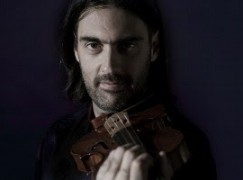An artist with heart: Leonidas Kavakos saves the lives of newborns
mainThis is a rough translation from a Greek report:
It has to be the most moving story I have heard over the years as a journalist. I was told by Leonidas Kavakos himself. A short time ago, the musician came to visit the intensive care unit of the newborns at the Children’s Hospital. He has seen the heroic efforts made by doctors to help infants and the difficult conditions in which they worked. The medical equipment is obsolete and many machines need upgrading. The director of the unit, Yannis Kapetanakis, begged him to come in with his violin to play for the newborn who give a real fight to keep alive.
He did. He played Bach to the babies, alone in their ward. After a few minutes, the miracle happened. Their intense heartbeats began to fall and his music proved to be medicine. Some of the infants were hours or days old. Yet their reaction to music was immediate. “It was an experience that I will never forget,” said Leonidas Kavakos. It is therefore no accident that the proceeds from his two appearances with the Athens State Orchestra in Athens and Thessaloniki this week will go to strengthen the unit, the Intensive Care Unit of the same hospital as well as the Parents’ Association Of Children with Neoplastic Diseases of Northern Greece, “Lampsis” in Thessaloniki.
Read on here.






Comments